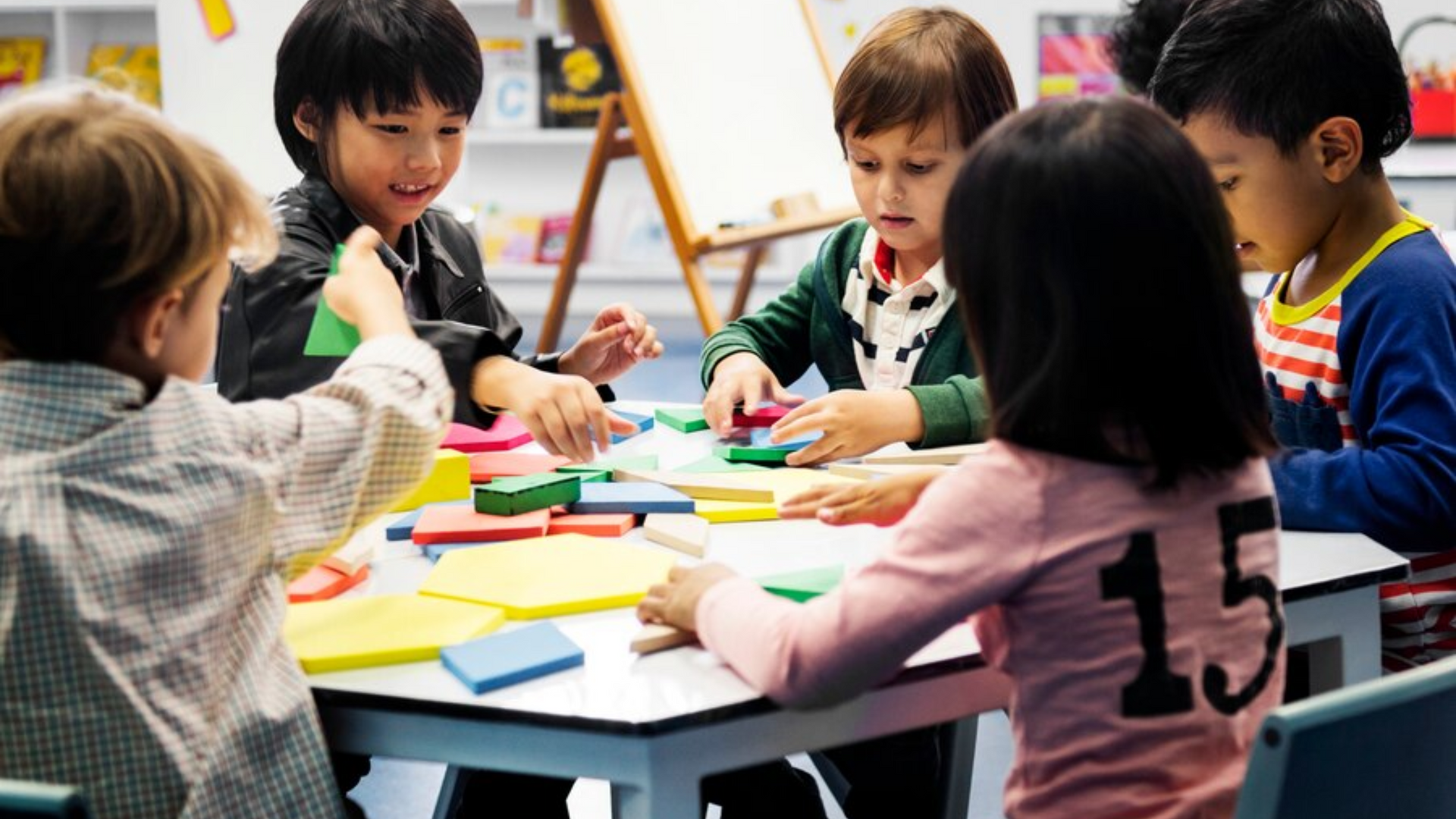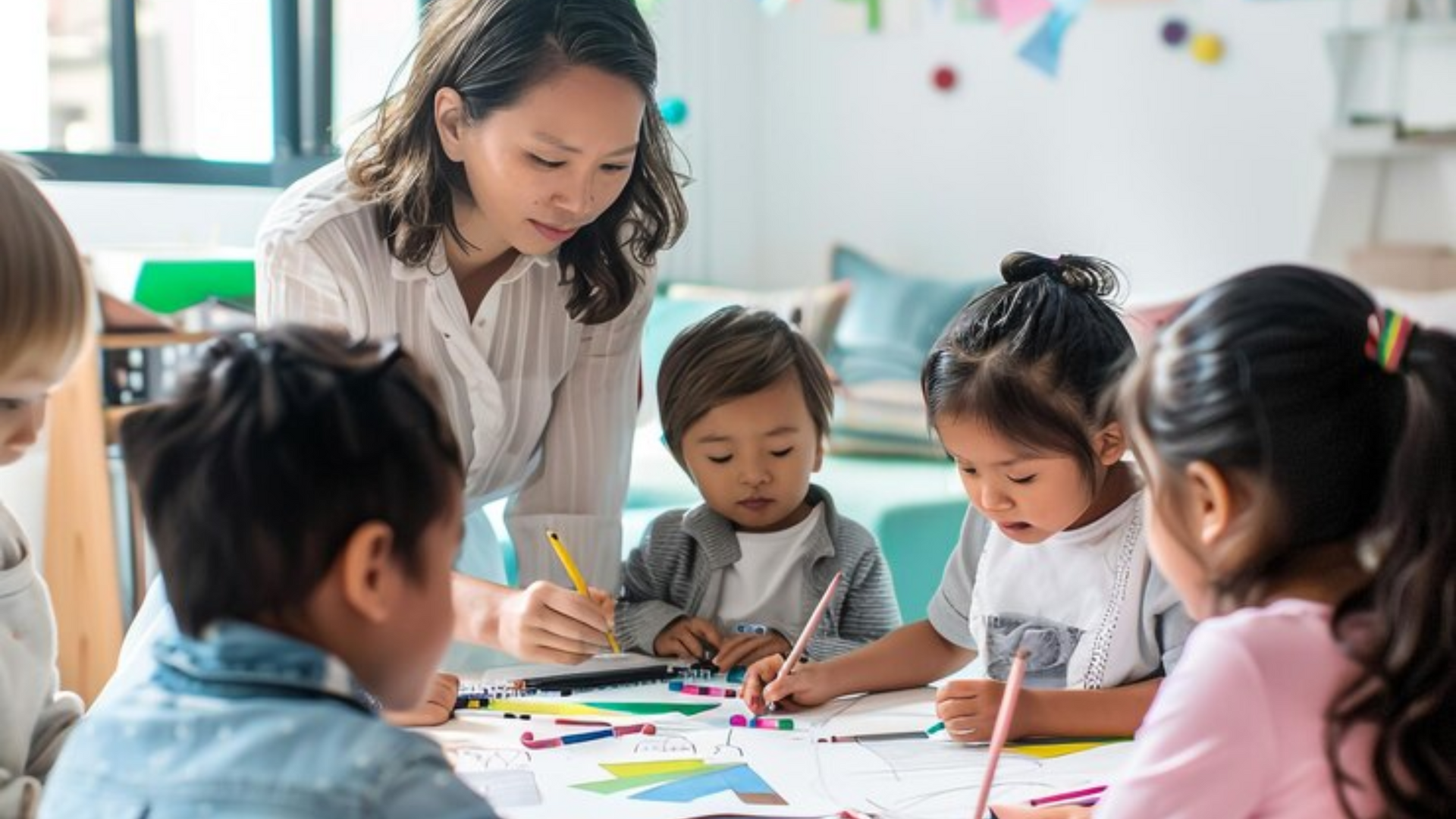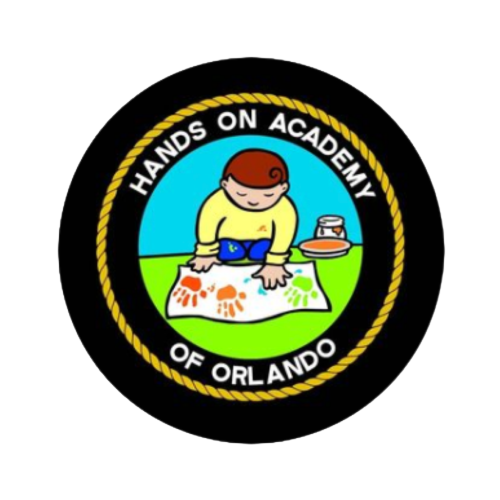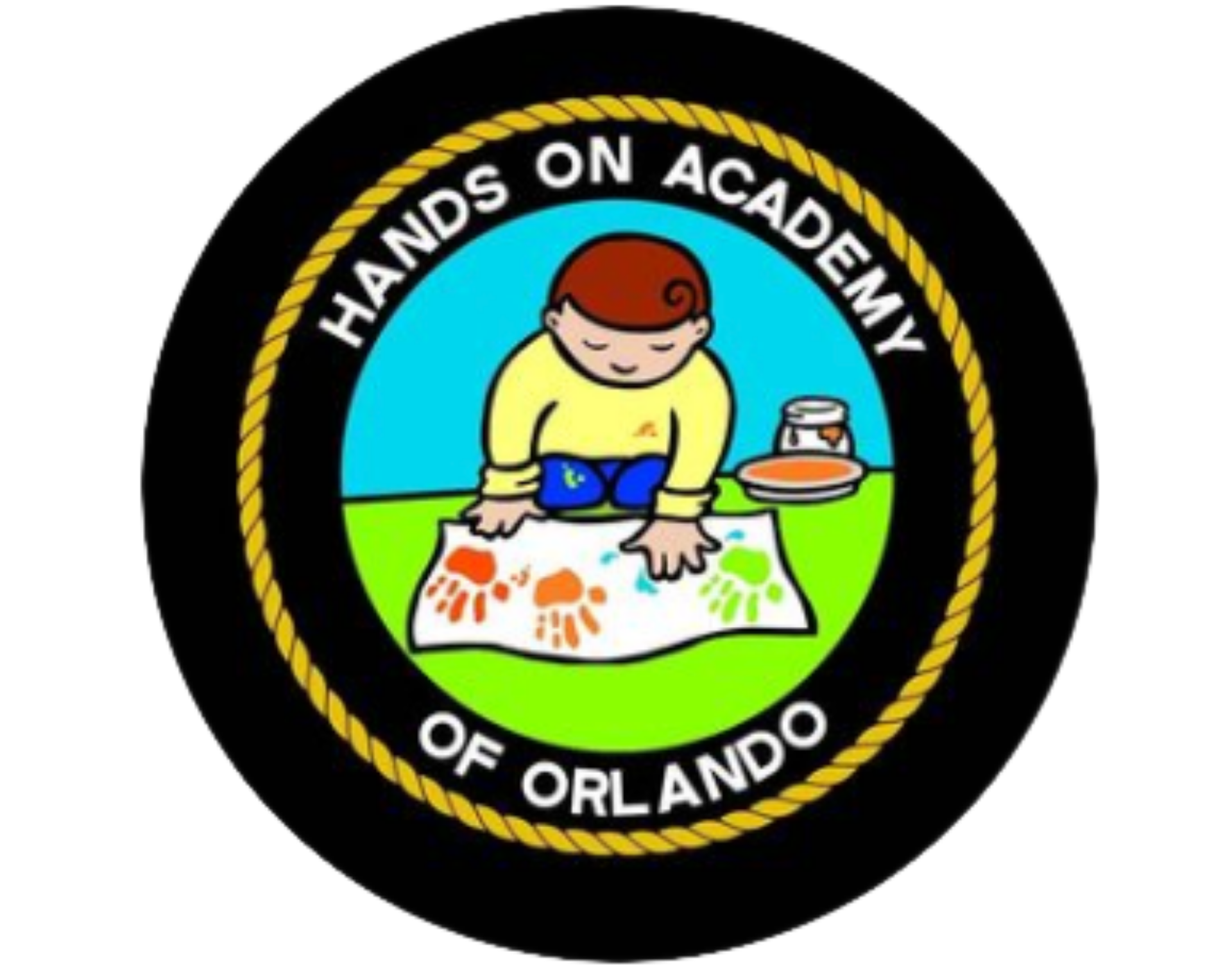June 6, 2025
At Hands-On Academy of Orlando, we believe that the foundation for a child’s future success is built during their early years. That’s why our curriculum is thoughtfully designed to balance structure and creativity, creating an environment that fosters both intellectual growth and emotional development. We understand that each child is unique, with their own pace, interests, and learning styles, and our approach is focused on supporting their individual journey while preparing them for the next steps in their educational path. Our curriculum is more than just a series of lessons and activities; it’s a carefully crafted framework that engages children’s minds, nurtures their curiosity, and encourages them to explore the world around them. We provide opportunities for children to learn through play, hands-on experiences, and structured activities that support academic, social, and emotional development. In this blog post, we’ll dive deep into the structure and creativity that defines the curriculum at Hands-On Academy of Orlando. From the early foundations of learning in our infant and toddler programs to the academic preparations in our preschool and VPK (Voluntary Prekindergarten) programs, we aim to ensure that every child not only excels academically but also grows socially and emotionally, creating a lifelong love for learning. The Core of Our Curriculum: A Balanced Approach At Hands-On Academy, we understand that young children learn best when they feel safe, supported, and inspired. That’s why our curriculum is designed with two key elements in mind: structure and creativity. While structure helps children build essential skills and routines, creativity fosters imagination, problem-solving, and critical thinking. Together, these components create a rich and dynamic learning environment that encourages children to thrive. Structured Learning: Building a Strong Foundation Our curriculum incorporates structured activities that focus on developing core academic skills. These activities are aligned with state standards, ensuring that children gain the foundational knowledge they need to succeed in their future educational endeavors. The structure of our curriculum provides children with clear expectations, routines, and goals, helping them develop important skills like: Early Literacy: From the moment children enter our program, we place a strong emphasis on developing early literacy skills. Our approach includes a combination of storytelling, phonics, letter recognition, and reading comprehension activities. These experiences lay the groundwork for reading and writing skills, building confidence and enthusiasm for language arts. Mathematics and Problem-Solving: Our curriculum introduces basic math concepts such as number recognition, counting, and shapes, gradually building to more complex concepts such as addition, subtraction, and pattern recognition. Problem-solving activities help children develop logical thinking skills and prepare them for future mathematical challenges. Social and Emotional Skills: In addition to academics, we place a strong focus on teaching children how to interact with others in positive ways. Structured activities promote teamwork, sharing, and cooperation, helping children develop emotional intelligence, empathy, and conflict resolution skills. These social-emotional skills are essential for children’s overall development and success in school. Physical Development: Physical activity is an essential part of our structured learning environment. Through outdoor play, fine and gross motor skill development, and coordinated activities, children build physical strength, coordination, and confidence. These activities also promote healthy habits and an active lifestyle. Creative Exploration: Fueling Imagination and Curiosity While structured activities provide a solid foundation for academic success, creativity plays an equally important role in fostering a child’s overall development. At Hands-On Academy, we offer ample opportunities for children to explore their creative potential through a variety of activities that stimulate their imaginations, critical thinking, and problem-solving abilities. Creative learning activities include: Art and Expression: We encourage children to explore their artistic talents through drawing, painting, sculpture, and other creative mediums. These activities help children express themselves, explore new concepts, and develop fine motor skills. Art also allows children to engage in self-reflection, develop confidence in their abilities, and celebrate their unique ideas and creations. Music and Movement: Music is a powerful tool for learning. At Hands-On Academy, we integrate music into our curriculum through songs, rhymes, rhythm exercises, and dance. These activities promote language development, memory, coordination, and an appreciation for rhythm and melody. Music also encourages self-expression, creativity, and teamwork when children sing and move together. Science and Exploration: We foster curiosity through hands-on science experiments, nature exploration, and sensory activities that encourage children to observe, question, and investigate the world around them. Whether it's exploring the properties of water, observing insects in nature, or experimenting with different materials, science activities inspire children to think critically and develop problem-solving skills. Imaginative Play: Imaginative play is a vital part of early childhood development. In our classrooms, children have access to dress-up clothes, pretend play sets, and various props that allow them to explore different roles and scenarios. Imaginative play encourages creativity, social interaction, and language development as children act out stories, negotiate roles, and communicate with their peers. Integrating Technology into the Curriculum While play and hands-on activities are at the heart of our curriculum, we also recognize the importance of introducing age-appropriate technology in a balanced and mindful way. Technology can be a valuable tool for learning, but it must be used in moderation and as a supplement to traditional methods of education. Our teachers use interactive tools such as educational apps and interactive whiteboards to enhance learning in a fun and engaging way. For example, children might use a tablet to practice letter recognition through an interactive game or watch educational videos that reinforce lessons learned during the day. The key is to ensure that technology is used to support and enhance learning rather than replace meaningful, hands-on experiences. Preparing for Kindergarten and Beyond Our curriculum is designed not only to meet the immediate needs of our young learners but also to set the stage for success in kindergarten and beyond. Whether children are in our infant program or preparing for VPK, we focus on providing age-appropriate experiences that support their academic, social, and emotional growth. By blending structured lessons with creative exploration, we ensure that children are ready for the next stage of their educational journey. For our VPK students, we emphasize skills that will help them thrive in a kindergarten setting, including: Pre-reading and Writing Skills: By the time children leave our VPK program, they will have developed strong early literacy skills. This includes letter recognition, writing their names, and understanding basic phonics and word patterns. Mathematical Thinking: Our VPK curriculum builds on early math concepts, helping children understand numbers, shapes, measurement, and basic addition and subtraction. These skills prepare them for more advanced math concepts in kindergarten. Social-Emotional Readiness: We help children develop the emotional resilience and social skills necessary for success in kindergarten. This includes learning how to interact with peers, express their emotions appropriately, and follow classroom routines. A Supportive and Inclusive Learning Environment At Hands-On Academy, we believe that every child deserves an education that respects their unique abilities, interests, and learning styles. Our teachers are trained to adapt the curriculum to meet the diverse needs of our students, ensuring that every child receives the support they need to succeed. Whether a child excels in creative activities or requires extra support in certain areas, our staff works closely with families to create a personalized learning experience. In addition to academic growth, we also emphasize social and emotional development, helping children learn how to manage their emotions, develop positive relationships, and build self-confidence. Our nurturing and inclusive environment creates a sense of belonging where every child can thrive. Conclusion At Hands-On Academy of Orlando, our curriculum is designed to provide children with a balanced, well-rounded education that promotes academic growth, creative exploration, and social-emotional development. By blending structure with creativity, we ensure that children are not only prepared for the next steps in their educational journey but also develop a love for learning that will last a lifetime. If you're considering when to start childcare for your child, you can find helpful information in our article on What’s the Best Age to Start Childcare . Additionally, if you're curious about the benefits of early enrollment, our article on 7 Advantages of Early Childcare Enrollment will provide valuable insights into why starting early can set your child on the path to success.


























